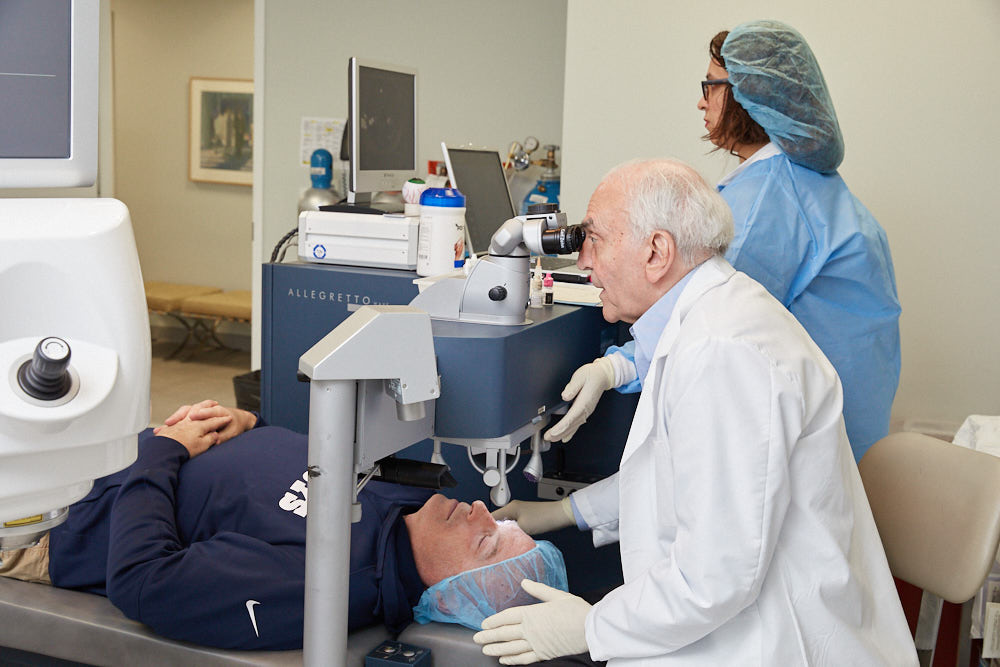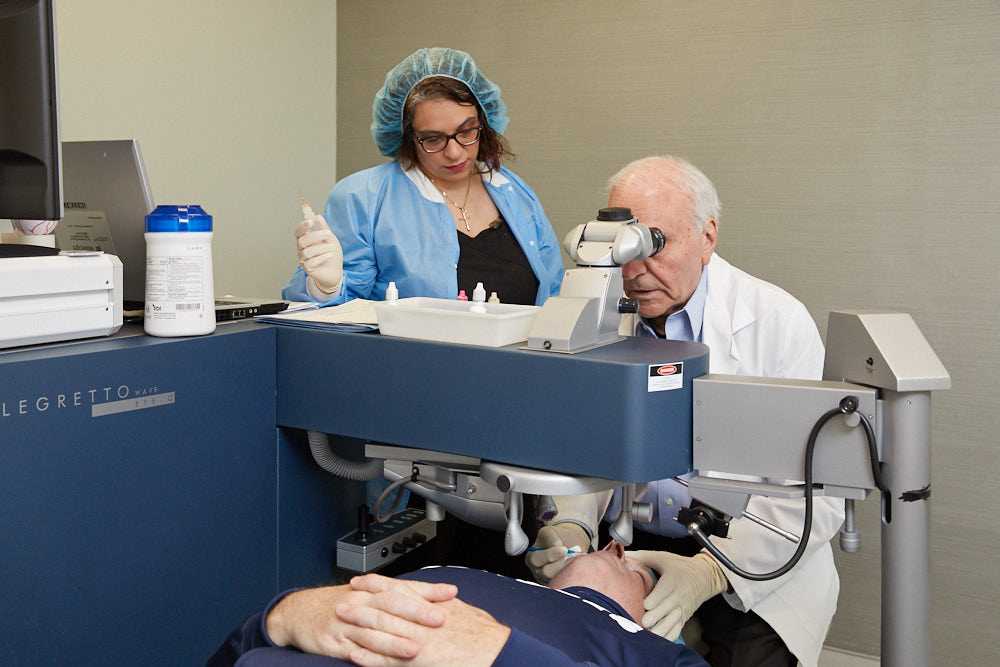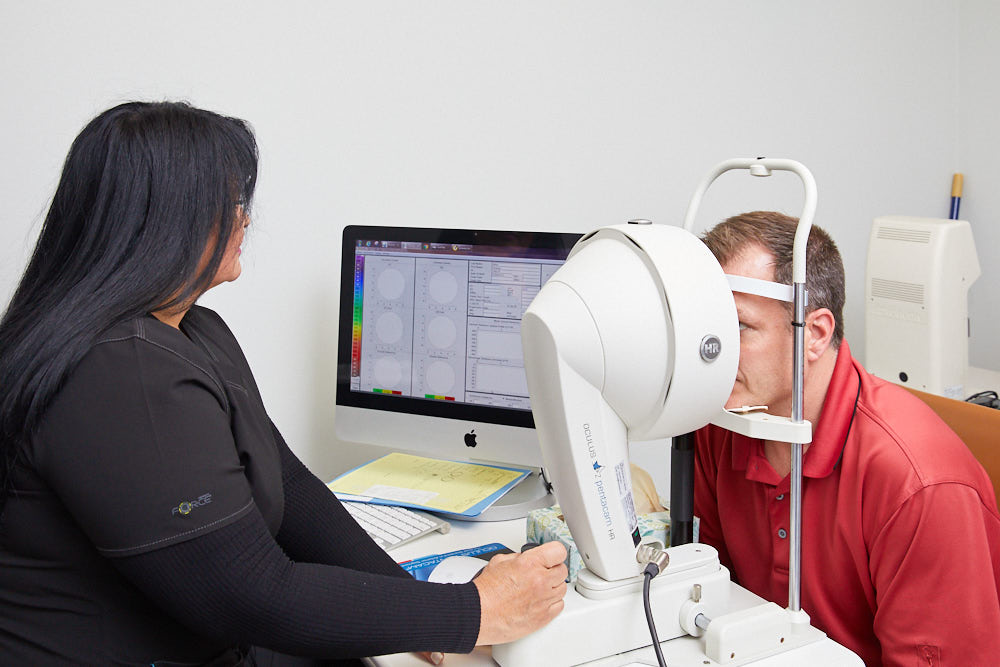Lasik Surgery
Radio host Howard Stern called him the “godfather of laser vision correction.” His son, Dr. Jeffrey Dello Russo, was the first surgeon to perform the laser procedure in the Northeast of the US and the tenth in the nation. The father and son team have introduced new techniques in the field of corrective eye surgery and dry eye treatment.
There are many choices for people who have vision needs, and LASIK surgery is only one of them. Nearsightedness and farsightedness are common. As much as 60 percent of the population have needed glasses or contacts at some point in their lives. However, some people find it difficult to deal with vision aids. They want to find out about more permanent solutions. For these people, LASIK surgery may be a good choice.
What is LASIK surgery?
LASIK surgery is most often a permanent cure surgery that restores your vision. It is not a cosmetic procedure and will not affect the way your eyes look. Depending on your age when you get it, you can expect to enjoy years or even decades of near-perfect vision. However, as you age, you may eventually need vision aids again.
As time passes, we all develop a need for reading glasses, which is not related to whether you have had LASIK or not. Rather, It’s Mother Nature saying you are losing your near vision after 40.
What is LASIK surgery?
LASIK surgery is most often a permanent cure surgery that restores your vision. It is not a cosmetic procedure and will not affect the way your eyes look. Depending on your age when you get it, you can expect to enjoy years or even decades of near-perfect vision. However, as you age, you may eventually need vision aids again.
As time passes, we all develop a need for reading glasses, which is not related to whether you have had LASIK or not. Rather, It’s Mother Nature saying you are losing your near vision after 40.
What does LASIK stand for?
LASIK stands for laser-assisted in situ keratomileusis. This term can essentially be translated as “reshaping of the cornea in its place with lasers.” It is a kind of refractive surgery. This manually corrects the shape and positioning of the cornea with the use of lasers. It is the most common type of ophthalmic surgery. LASIK can be a good fit for those who are nearsighted, farsighted, and those who have astigmatisms.
During a LASIK procedure, an eye doctor uses lasers to reshape your cornea. This lets light enter through the eye on a proper path. When light is directed correctly toward the retina, you will be able to see more clearly.
LASIK was once a groundbreaking surgery. Now, it is a simple in-and-out procedure. It is performed thousands of times a day in ophthalmic offices all over the country.
Who is a good candidate for LASIK surgery?
LASIK has helped hundreds of thousands of patients improve their vision. But not everyone is a good candidate for the procedure. There are a few things that are required for you to qualify for LASIK surgery.
LASIK has an overwhelmingly high success rate. However, anyone who is considering it should know that there are minor risks involved. Occasionally, a LASIK procedure results in vision that is not perfect 20/20. As with any surgical procedure, there is a chance of complications. The ideal candidate for LASIK should be able to accept the possibility of a poor outcome. Most people who go through LASIK surgery experience improved vision with no complications.
LASIK has helped millions of people see without glasses in the US over the last twenty-nine years since Dr. Joseph Dello Russo and the laser’s inventor, Dr. Trokel, introduced the first laser in 1990.
The LASIK procedure is quick — around 8-15 minutes — if performed by the Dello Russo doctors and most people can return to work the next day.
To qualify for LASIK, your prescription must also remain unchanged for a minimum of two years. For this reason, it is recommended that people wait until after 18 years old before having LASIK surgery. Before this point, your eyes are still developing, and your prescription is likely to get worse every year or two. LASIK is not a good idea then, since the procedure needs to be repeated as your eyes continue to develop.
You may be a good candidate for LASIK, if you are willing to undergo surgery. Also, if you have had a stable prescription for two years or more, and are in generally good health. If you have glaucoma, cataracts, or another eye disease, you should not get surgery.
How do you prepare for LASIK surgery?
Your eye doctor can help prepare you for your LASIK surgery. However, there are a few things that you should know.
A day or two before your surgery, avoid wearing any eye makeup. You should also not use creams, liniments, or other products on or around your eyes. You may also be asked to wash your face, specifically your eye area, before coming in for your procedure. This is to ensure that there is no dirt or debris around the surgical site.
You will also need to take some time off from work. Although LASIK is a quick procedure, your eyes will take a few days to be back to full capacity.
When you are getting ready to go in for your surgery, do not wear any accessories or jewelry. This could get in the way of the lasers that are used during the procedure. Dress simply and comfortably.
You should also make plans to get a ride to and from your surgery. Your vision will not be ready for the road for a few days, so you should not drive.
Before your surgery, you will most likely be able to eat and take medications as usual. However, you should confirm these details with your doctor before the procedure.
What happens during your LASIK surgery?
LASIK surgery is an extremely quick procedure. It is entirely possible that you will be in and out of the operating room within 15 minutes. It is also not painful, so you will not be given any drugs. However, you will receive a local anesthetic in the form of simple eye drops. These will keep you from feeling any pain during the procedure. If you are feeling nervous, ask your doctor if they would be willing to give you a mild sedative. This will help you relax in the operating chair.
Although the surgery is painless, you will be awake for it. Most people find that this is not as nerve-wracking as they expected. Once your LASIK surgery is done, you should go home and rest. When your eyes heal, you will be able to enjoy 20/20 vision once again.

Don’t worry – you’re in safe hands
We perform LASIK surgeries in our four locations. Our LASIK surgeons are Dr. Joseph Dello Russo and
Dr. Jeffrey Dello Russo who treat patients with the faster speed Alcon’s Allegretto Wave Eye-Q.



